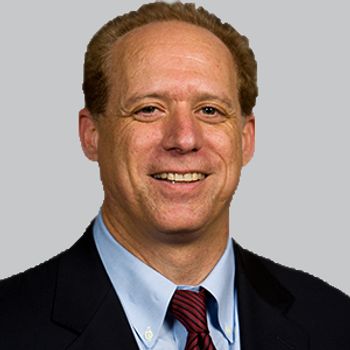
Findings revealed that 27% of patients responded to the treatment of continuous subcutaneous apomorphine infusion and sustained efficacy overtime in patients with Parkinson disease.

Findings revealed that 27% of patients responded to the treatment of continuous subcutaneous apomorphine infusion and sustained efficacy overtime in patients with Parkinson disease.
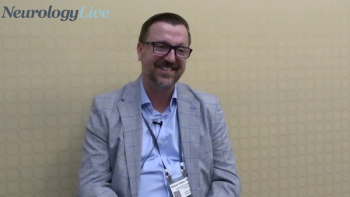
The movement disorder specialist at Texas Movement Disorder Specialists talked about a comprehensive panel discussion that highlighted the evolution of Parkinson disease treatment. [WATCH TIME: 4 minutes]
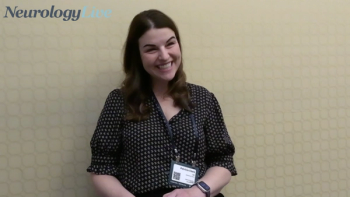
The nurse practitioner at the Cleveland Clinic talked about a specialized program involving nurse practitioners that aims to improve inpatient care quality and safety for patients with Parkinson disease. [WATCH TIME: 5 minutes]

The director of the Center for Sleep and Cardiovascular Outcomes Research at University of Pittsburgh talked about a phase 3 trial assessing a pharmaceutical treatment, AD109, in sleep apnea.
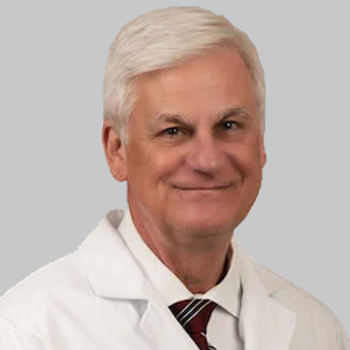
Bezisterim has shown potential in improving non-motor symptoms like fatigue and sleep issues, with promising results from previous studies.

Modified Functional Status Questionnaire, an assessment of activities of daily living, includes several different notable domains, including quality of interaction, social activity, and psychological function.
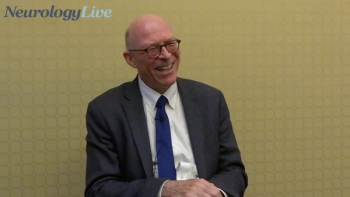
The director of the Memory Disorders Program at Georgetown University talked about newly approved anti-amyloid antibodies that show significant promise in slowing Alzheimer disease progression. [WATCH TIME: 5 minutes]
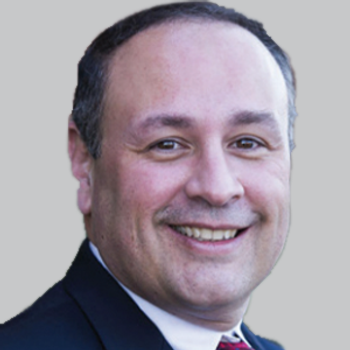
Although the data used predated 2019, istradefylline was associated with a statistically significant lower odds of the overall incidence of treatment-emergent adverse events than other adjunctive therapies for Parkinson disease.

In a large-scale analysis. 70% of patients with essential tremor and 70% of undiagnosed patients reported dissatisfaction with the therapeutic options available to treat their condition.
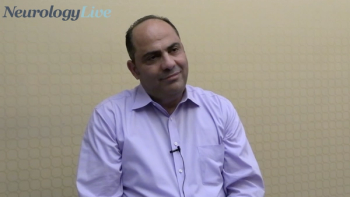
The associate professor of neurology at Georgetown University Medical Center talked about disease-modifying therapies for movement disorder-related dementia that aim to address the underlying mechanisms of the disease. [WATCH TIME: 5 minutes]
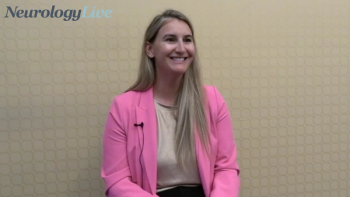
The executive director of the Association of Movement Disorder Advanced Practice Providers talked about the need for improved communication and trust of the patient-provider relationship in the field of movement disorders. [WATCH TIME: 3 minutes]
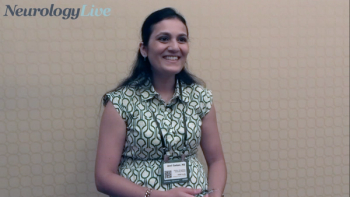
The assistant clinical professor of medicine at Medstar Georgetown University Hospital talked about her presentation at ATMRD where she covered various advanced therapies for managing Parkinson disease and essential tremor. [WATCH TIME: 5 minutes]
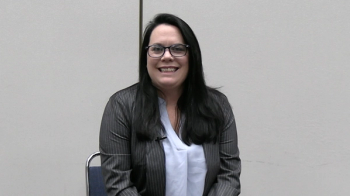
The assistant professor at the University of South Florida provided perspective on the influence of circadian rhythm in neurocognitive health and the possibilities of screening for circadian rhythm issues for large-scale clinical trials. [WATCH TIME: 4 minutes]

Eric Herzog, PhD, a chronobiologist and professor of biology and neuroscience at Washington University, provided thoughts on a number of topics related to sleep during pregnancy and the significance of maintaining circadian rhythms.
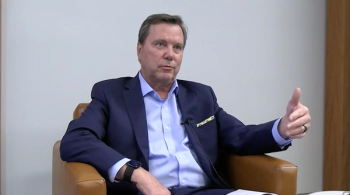
In this conversation, Negroski provides commentary on the role of lymphocyte counts and specifically a study evaluating changes in these counts for patients switching between dimethyl and diroximel fumarates.

Donald Negroski, MD, shared thoughts on retrospective data assessing patients with multiple sclerosis who switched from S1P-modulating agents to ozanimod, another approved disease-modifying therapy.

The pediatric neurologist and sleep medicine specialist at Geisinger Medical Center provided commentary on the complexities with treating cataplexy, and the misperceptions patients may have about how to manage their condition. [WATCH TIME: 3 minutes]
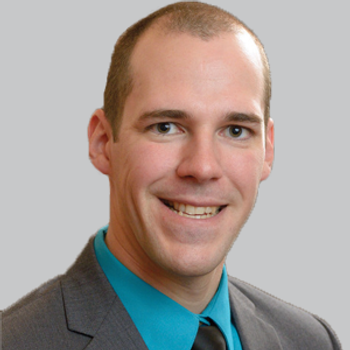
Douglas A. Wadja, PhD, an assistant professor of neurology at Cleveland State University, detailed a study assessing an electrical nerve stimulation approach to alleviate gait dysfunction in patients with MS.

Ron Grunstein, MD, PhD, head of Sleep and Circadian Research at the Woolcock Institute of Medical Research, provided commentary on early, promising data regarding investigational agent ALKS 2680 in patients with narcolepsy type 1.

Mind Moments®, a podcast from NeurologyLive®, brings you exclusive interviews with Anthony Feinstein, PhD, FRCPC, MBBCh; Brian G. Weinshenker, MD; Douglas A. Wajda, PhD; Le Hua, MD; and Eoin P. Flanagan, MB, BCh. [LISTEN TIME: 22 minutes]
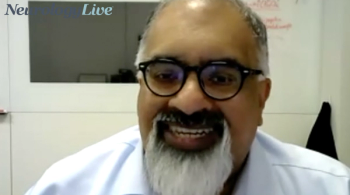
The director of the Center for Sleep and Cardiovascular Outcomes Research at University of Pittsburgh talked about a novel pharmacologic treatment that shows potential as an alternative to continuous positive airway pressure for sleep apnea. [WATCH TIME: 5 minutes]
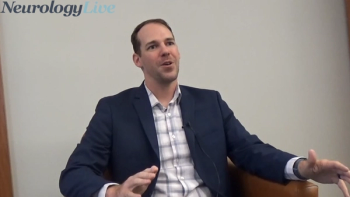
The assistant professor of neurology at Cleveland State University provided perspective on an early-stage study assessing the impacts of a functional electrical stimulation approach to treat gait problems in multiple sclerosis. [WATCH TIME: 4 minutes]
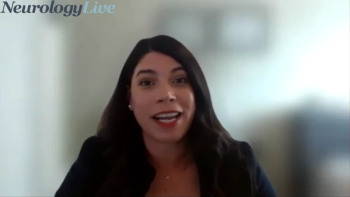
The director of Mission Delivery and Program Development for the Multiple Sclerosis Association of America provided perspective on a study presented at CMSC 2024 highlighting factors that play a role in access to resources and healthcare for patients with MS. [WATCH TIME: 3 minutes]

The pediatric neurologist and sleep medicine specialist at Geisinger Medical Center discussed a presentation from SLEEP 2024 highlighting the impacts of narcolepsy and how patients try to mitigate their symptoms. [WATCH TIME: 5 minutes]

The head of the MS Center at Methodist Hospitals discussed the need for inclusive and affirming healthcare practices for patients with multiple sclerosis who identify as LGBTQ+.
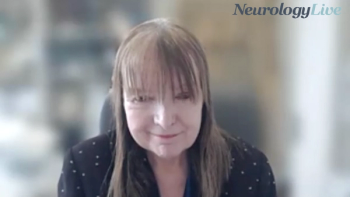
The professor of neurology at Stony Brook Medicine talked about the diagnosis of primary progressive multiple sclerosis, a unique MS phenotype characterized by a gradual deterioration without initial attack. [WATCH TIME: 5 minutes]
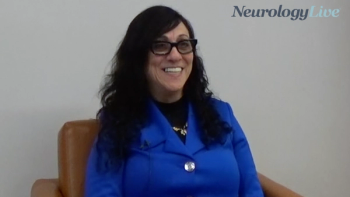
The assistant professor at Hunter College emphasized the important role of localization and accurately identifying the origin of neurological symptoms when diagnosing and managing multiple sclerosis. [WATCH TIME: 7 minutes]
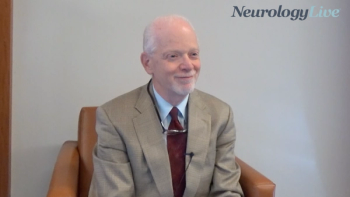
The professor of neurology at the University of Virginia talked about the improvement and areas of unmet need in the diagnosis and treatment for neuromyelitis optica spectrum disorder. [WATCH TIME: 6 minutes]

A recent study showed that patients with isolated REM sleep behavior disorder had a high risk of neurodegenerative parkinsonian disorders or dementia based on electronic health records.
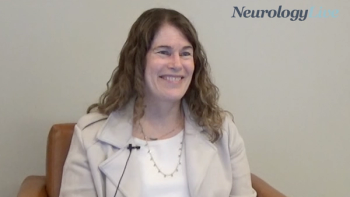
The associate vice president of research at National MS Society talked about proactive and early referral to rehabilitation services to effectively manage multiple sclerosis symptoms from the outset. [WATCH TIME: 4 minutes]